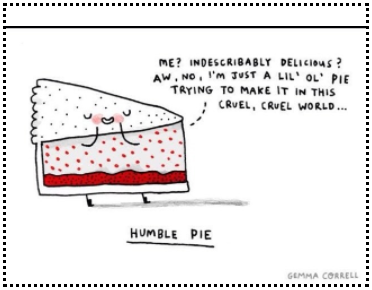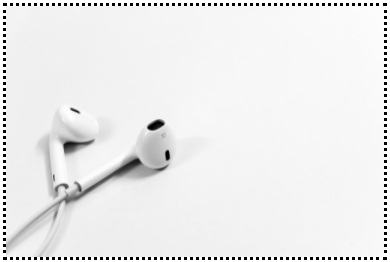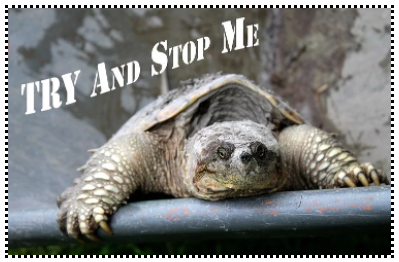Interview Anxiety? You're Probably Worried About the Wrong Thing
Aug 18, 2021Mmm, yum, love me some Humble Pie

When I was about 23 years old, I interviewed for an educational position at the Royal Tyrrell Museum of Paleontology.
It’s the premiere “dinosaur museum” in the world - Alberta used to be an enormous inland sea, and - thanks to this and a number of other factors - we have a huge number of fossils and dig sites.
There’s a reason there is an ‘Albertosaurus’.
Anyways, I got an interview. I was jacked, because this is a SUPER COOL place, and I wanted to work anywhere that wasn’t within a 30-minute drive from my hometown.
Like, nearly anywhere. And to score this gig?? *chef’s kiss*
I did all the things: got there early, all gussied up, warmed up vocally (yes, as a speaking coach, I do those things regularly!!), relaxed with rock music (it’s a thing for me).
I didn’t meditate or do breathing exercises, because I was young and dumb and didn’t know better...yet.
Once in the interview, I shone: I could talk the legs of an elephant (and I only got worse when nervous!), and the improv acting (yes, you read that right) and impromptu speaking tasks they had me do were almost custom-built for my strengths.
My happy, cocky, “I’ve got this is the bag” attitude was shot from the sky when one of the interviewers looked at me and casually asked, “What does paleontology mean?”
Holy shit.
I was interviewing at the Royal Tyrrell Museum of PALEONTOLOGY and I hadn’t bothered to figure out WTF “Paleontology” technically meant.
I also, incidentally - and embarrassingly - did NOT know who the ‘Tyrrell’ was in the name of the Museum.
In my “defense”, this WAS pre-internet
Nowadays, I think I’d try to laugh it off with a crack like, “....a Lannister??” (you either get that joke, or you don’t - worry!).
I say “defense”, because this is not really defensible. It is such an elementary component of the competence of the job that I couldn’t quite believe I’d never thought of it.
Paleontology, according to the Oxford Dictionary, is “the branch of science concerned with fossil animals and plants”.
My answer? “......dinosaur bones??”. I wasn’t wrong, but I also definitely wasn’t right.
They knew that I didn’t know - and I knew that they knew that I didn’t know. Ad nauseum.
I was gutted. Despite my flamboyant levels of confidence, I’d been caught out on my basic competence.
This is not the story that most women tell (though they can definitely tell you stories about the times they’ve witnessed someone else who was brimming with unmerited confidence duff it hard).
What do most women experience, then?
Sound Familiar?

The Interview.
Most women have been there: that weird place where we’re equal parts excited (about an opportunity that *might* come to pass) and anxious (what if we suck? don’t get chosen?). It’s a swirling concoction of imagination and agitation.
It can pull you down into its dark depths pretty quickly, too, if you let it.
You know what I mean: when you start playing over every “failure” or “rejection” you’ve ever experienced in interviews (or in life!).
You’ve built all kinds of stories about what these experiences mean (and bear in mind, they ARE stories).
Your successes mean little: you’re sure that it’s just that you’ve gotten lucky/fooled people up ‘til now, and you’re about to be found out.
You create the settings, the action, the dialogue, the intricate visualizations about everything that will go wrong in the impending interview (and it doesn’t matter: in-person, phone, Zoom - the freakout factor is equally high).
If there was an Oscar for this level of visualization, you’d be a serious contender.
But we’re focusing on the WRONG ELEMENTS. And a simple mindset shift can make all the difference.
Facts
Every work interaction we have (from the burger shack cashier to the CEO) comes down to two things that each of us brings (or doesn’t) to the table: competence and confidence.
Women, as a rule, believe in a meritocracy.
That is, we think that knowing our stuff, being good at our job, and working hard constitutes the pathway to success (all evidence of competence).
So, going into interviews, we are concerned with being able to translate those traits and behaviours into a series of answers that evidence our competence.
Will we be asked questions we know the answer to? Will we use the right words? Will we forget to put all the right details into our responses? Will the interviewers know we’re capable and therefore choose us?
(this is clearly where I could have used some work….hint: “Paleontology”).
On the surface, these all seem like competence concerns: will I be able to show what I know?
But re-read that, this time through the lens of confidence: “will I be able”.
This is really about belief in yourself, not knowledge-of-work.
It’s about confidence.
Think about it: you’ve already gotten the interview, so you can assume that you’ve got the “table stakes” to be in the game.
Your resume/ CV/ references/ application met a minimum standard (and don’t bother guessing what that might be - contrary to popular belief, having 100% of the posting’s “qualifications” means very little - the average is more like 60% to get in the door - after all, you’re not trying to get THE SAME JOB YOU ALREADY HAD, are you?).
You are supposed to be there.
(but do the research, please!)
Self-Sabotage

Despite all of these promising realities, we start our downward spiral as soon as we book an interview because that’s when the second-guessing starts (and yes, I know - you were second-guessing when you chose to apply, too).
Instead of accepting we’ve got the table stakes to be in the game (at the table), we start to invent stories about why we shouldn’t be there, why they wouldn’t choose us, how much we’ve fooled everyone, and that - this time - the jig is up.
What does this do to your confidence? (provided you had some to start with)
Yeah. Down the drain, we go.
So rather than accepting the promise of the interview, and building our confidence towards that moment, we undermine our existing confidence (however low it might be), AND we question our competence.
Double-whammy.
All of this is because we are focusing on competence over confidence.
We really are putting the cart in front of the horse.
And the cart will ALWAYS be run over by the horse. Just sayin’.
‘That’ Guy

I know you know someone like this: some dude who is barely competent (you sometimes wonder how he even functions day-to-day) but who is successful.
It makes no sense: you know that if you did 1/16th of the shit he did, you’d be out on your ass. You do 400% the work at 2000% better quality.
He’s the boss, you’re the lackey.
You could blame gender and systemic bias: you’d be right, as a woman, that those do contribute to your experience.
But what about all the other dudes he’s fooled? Are they all idiots? (probably not) Is he competent, and you’re just incompetent to realize this? (unlikely) What gives?
The fact is we pick people because they make us believe in them. How do they make us believe in them?
You know the answer: their confidence in themselves leads to our confidence in them.
So, “That Guy”? He’s made those around him believe in him, through his belief in himself.
Sure, he might be delusional, but humans are quite content in believing in delusional people as long as that delusional person believes in his- or herself (mostly himself, though, in my experience).
In theory, you - the woman with competence! - are already beyond the ‘delusionality test’ - you don’t believe in yourself in the absence of competence.
You’re actually coming at this from the other direction: you’re trying to leverage your competence in the absence of confidence.
Well, Snap…

I know, right? What’s a woman to do with such an epiphany??
It’s not like you can snap your fingers and be instantly confident, right? Or can you??
I’ll admit that a ‘snap’ is a bit hopeful (though I’m a big believer in practical magic), but there ARE things you can do to mitigate and manage the anxiety you are feeling.
Take your resume or CV and make yourself a list of competencies that are broad (not just specific to your job). This list is a great place to start.
- Take your resume or CV and make yourself a list of competencies that are broad (not just specific to your job). This list is a great place to start.
YOUR WHY: By beginning to talk about your competences as “useful human traits” rather than tying them to a specific job/task, you are much more free in your ability to respond. PRO TIP: Practice verbalizing these things - with a coach, a friend, to yourself, etc. HEAR yourself say them. FEEL yourself say them. There lies confidence, my friend.
-
Recognize that feelings of confidence are, in part, tied to levels of testosterone. You may have heard of Amy Cuddy’s “Power Poses” and her viral TEDTalk: in it, she itemizes (and demonstrates) a handful of physical positions that (she says) correlate with increased testosterone and feelings of confidence. Not everyone agrees with her explanation of her findings, but the fact is many, MANY women report feeling more empowered and confident as a result of practicing these power poses (I can’t tell you how many times I’ve walked in on women in the Ladies’ acting like a superhero - watch the TEDTalk find out why!!).
YOUR WHY: Being more fully present and aware of your body, its positions, gestures, energy, etc., is a powerful way to connect your head, heart, and physicality. Whether it’s related to testosterone or not, being physically present, connected, and consciously taking up space (something women frequently shy away from) boosts your sense of confidence and others' perception of your confidence.
- Learn to STOP. This is something I work with women on (individually and in groups) ALL. THE. TIME. When you experience something (ANYTHING) your brain categorizes the event/stimuli, and about 80% of the time skips the actual thinking process. It predicts. And then it reacts. If you associate interviews with danger, your sympathetic nervous system activates. You feel your feels (heart rate, sweat, shaking, etc.) and you interpret it as anxiety. In an interview, these elements will only escalate if you aren’t aware of (and therefore not controlling) your interpretations of your sensations.
YOUR WHY: STOPP is an acronym for “Still yourself, Take inventory, Observe opportunities, Pick your path and Proceed”. These steps allow you to interrupt the cycles you get caught in (and can honestly take one belly breath’s time to activate change), and reclaim your focus and power in a situation. Yup, confidence-in-a-bottle (just about, anyway).
These three steps can begin the shift (mind AND body) necessary to controlling anxiety in interviews.
Is it exhaustive? Hell no. Of course not.
But Rome wasn’t conquered in a day (at least, that’s what they tell me). Brick-by-brick is our approach.
To sum up: you work hard, study hard, research hard, practice hard, try hard - you’ve pretty much got the competence thing sewn up.
But working to build your confidence in your body, mind and belief is going to be where the breakthroughs come, both in terms of feeling and/or managing anxiety AND in achieving the kind of success only confidence can provide.
My proof?
I got the job.
And it was confidence that made the “paleontology” debacle a non-deal breaker.
Until next week!!
xo dee
ps. check out https://www.facebook.com/teewithd to follow and/or like the stuff I’m talking about, plus take the opportunity (while you’re there!) to join The TEEHouse, a wee group I’m starting to build to support and connect women interested in the sort of stuff we ‘serve’ at TEEwithD. Find me on LinkedIn at https://www.linkedin.com/teewithd to see when and where I’m speaking next. Check out weekly blogs/vlogs/podcasts, a fun quiz, reflection guide, and lots of sass on my Mother Ship: https://www.teewithd.com See you there! xoxo


